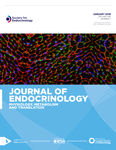Testosterone deprivation accelerates cardiac dysfunction in obese male rats
- Wanpitak Pongkan1,2,3,
- Hiranya Pintana1,2,3,
- Sivaporn Sivasinprasasn1,2,3,
- Thidarat Jaiwongkam1,2,3,
- Siriporn C Chattipakorn1,2,4 and
- Nipon Chattipakorn1,2,3⇑
- 1Cardiac Electrophysiology Research and Training Center, Faculty of Medicine, Chiang Mai University, Chiang Mai, Thailand
- 2Cardiac Electrophysiology Unit, Department of Physiology, Faculty of Medicine, Chiang Mai University, Chiang Mai, Thailand
- 3Center of Excellence in Cardiac Electrophysiology Research, Chiang Mai University, Chiang Mai, Thailand
- 4Department of Oral Biology and Diagnostic Science, Faculty of Dentistry, Chiang Mai University, Chiang Mai, Thailand
- Correspondence should be addressed to N Chattipakorn; Email: nchattip{at}gmail.com
Abstract
Low testosterone level is associated with increased risks of cardiovascular diseases. As obese-insulin-resistant condition could impair cardiac function and that the incidence of obesity is increased in aging men, a condition of testosterone deprivation could aggravate the cardiac dysfunction in obese-insulin-resistant subjects. However, the mechanism underlying this adverse effect is unclear. This study investigated the effects of obesity on metabolic parameters, heart rate variability (HRV), left ventricular (LV) function, and cardiac mitochondrial function in testosterone-deprived rats. Orchiectomized or sham-operated male Wistar rats (n=36per group) were randomly divided into groups and were given either a normal diet (ND, 19.77% of energy fat) or a high-fat diet (HFD, 57.60% of energy fat) for 12weeks. Metabolic parameters, HRV, LV function, and cardiac mitochondrial function were determined at 4, 8, and 12weeks after starting each feeding program. We found that insulin resistance was observed after 8weeks of the consumption of a HFD in both sham (HFS) and orchiectomized (HFO) rats. Neither the ND sham (NDS) group nor ND orchiectomized (NDO) rats developed insulin resistance. The development of depressed HRV, LV contractile dysfunction, and increased cardiac mitochondrial reactive oxygen species production was observed earlier in orchiectomized (NDO and HFO) rats at week 4, whereas HFS rats exhibited these impairments later at week 8. These findings suggest that testosterone deprivation accelerates the impairment of cardiac autonomic regulation and LV function via increased oxidative stress and impaired cardiac mitochondrial function in obese-orchiectomized male rats.
- Received 23 February 2016
- Accepted 17 March 2016
- Made available online as an Accepted Preprint 1 June 2016
- © 2016 Society for Endocrinology











